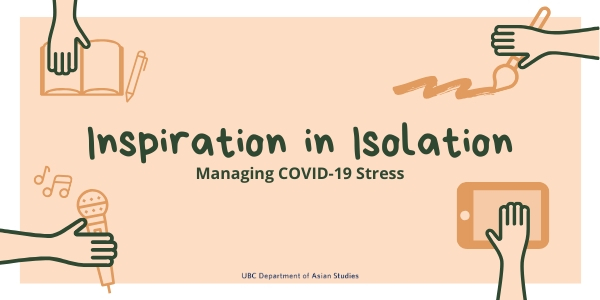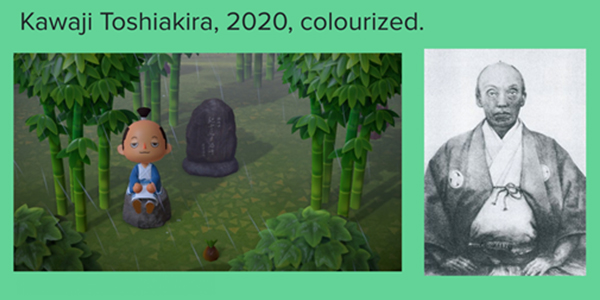

We’ve asked some of our Asian Studies faculty, staff and students to share their experiences on working from home. Bianca is a third-year History major with a minor in Asian Studies, focusing on Japan. She is currently a WorkLearn assistant at the Centre for Japanese Research. Bianca intends to write her graduating thesis on themes of travel and movement in Tokugawa Japan this September.


What are some problems you may have encountered during the transition to remote working?
- Screen time and video calls! My eyes are drained staring at a screen all day. Video lectures and calls are tricky as it could be hard to read the room sometimes and I miss the human contact with my instructors and classmates!
How did you cope with the problems to ease the transition?
- Screen time: I try to take 5 minutes breaks from time to time and look out at my windows at the green trees and bushes! As for making social contact, I try to stay in touch via emails and drop by virtual office hours!
Describe one new thing (skill, interest, pastime, etc) you may have learned during the quarantine time
- Dr. Laffin has very graciously allowed me to join the kuzushiji benkyokai (くずしじ勉強会) so I’ve been trying to learn how to identify these cursive brushstrokes and keep up with my grad students senpai! I also discovered the lure of Twitter and joined quite a few virtual lectures and talks in that way. Some of them include the Medieval Academy of America and the Stanford Rare Books’ lectures on medieval manuscripts! I guess I’m just trying to keep my brain active and sharp during these summer months where we should keep vigilance and do our part by staying inside!
Any medium (music, books, cooking recipe, etc.) you could recommend that you’ve found relaxing/entertaining recently?
- Animal Crossing! Like many others, I’ve been enjoying my escape to a deserted island and going “outdoors” in this virtual world! I’ve done so much in the game – paying off my house loans, enjoying the lure of capitalism by partaking in turnips selling (stalk-market), outfitting my avatar in the latest fashion…..and even attending a UBC in-game graduation ceremony! (It is President Ono approved….)


- I recreated a popular history meme format with the game for my Zoom oral presentation. Here is KAWAJI Toshiakira, a daimyo in bakumatsu period, the subject of my microhistory paper. He was reportedly the first person to commit suicide with a pistol in Japan and he chose that method as half of his body was paralyzed and he could not commit seppuku properly.
During this time, have you sought/found any words of wisdom or quotes from your language area/culture/background that you have found to be particularly comforting, and could share if so?
- There are two sayings I’d like to share: 船到橋頭自然直 and 明からない夜がない.船到橋頭自然直 is a Cantonese phrase I grew up with, roughly translated to the boat will straighten when it reaches the dock. I think it is comforting to remember that things will eventually work out. 明からない夜がない is a Japanese phrase I read online, roughly translated to there is no night that will not brighten. This phrase serves as a good reminder to us all that the night will go away and a new day will come.
As a thank you for your time in answering these questions, is there anything personally you’d like to promote or let everyone know about right now?
- I just want to use this chance to say thank you to all the instructors and supporting staff out there! I know it is hard for students to adapt to an online environment so I’m sure that it is extra hard for instructors to adapt their carefully crafted courses and transport that digitally! In particular, I’d like to thank certain individuals associated with the Department: Hoshi Sensei and Kawada Sensei for their constant encouragement and support; Dr. Mostow for his unweaving patience and witty jokes I don’t quite understand; Dr. Laffin for her graciousness and kindness; Tomoko the librarian for her assistance and kindness; Dr. Zoe Lam for encouraging me to look back at my upbringing and inspiring me to learn Cantonese romanization, and Cai Laoshi for his gracious considerations and patience in answering my questions.
To read more Inspiration in Isolation stories, click here!


